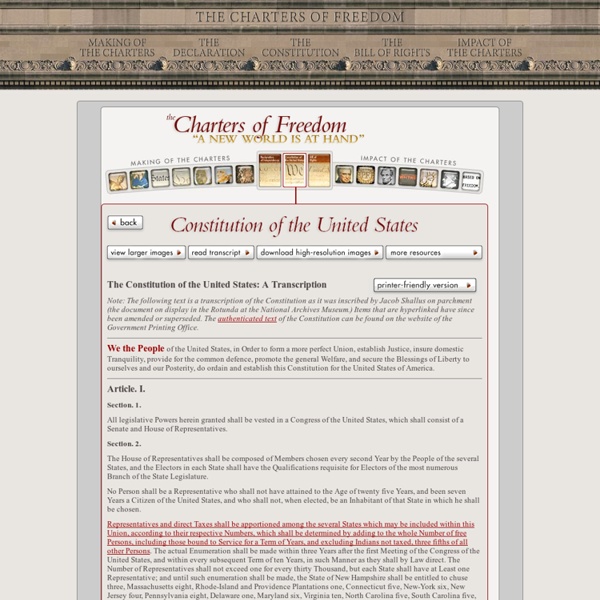The Best Map Ever Made of America’s Racial Segregation
Last year, a pair of researchers from Duke University published a report with a bold title: “The End of the Segregated Century.” U.S. cities, the authors concluded, were less segregated in 2012 than they had been at any point since 1910. But less segregated does not necessarily mean integrated–something this incredible map makes clear in vivd color. The map, created by Dustin Cable at University of Virginia’s Weldon Cooper Center for Public Service, is stunningly comprehensive.
Tell the Copyright Office: Copyright Law Shouldn't Punish Research and Repair
After eighteen years, we may finally see real reform to the Digital Millennium Copyright Act’s unconstitutional pro-DRM provisions. But we need your help. In enacting the “anti-circumvention” provisions of the DMCA, Congress ostensibly intended to stop copyright “pirates” from defeating DRM and other content access or copy restrictions on copyrighted works and to ban the “black box” devices intended for that purpose. In practice, the DMCA anti-circumvention provisions haven’t had much impact on unauthorized sharing of copyrighted content.
Iraqi Civil Society Solidarity Initiative (ICSSI)
Policy Paper Presented to the Iraqi Government on the legal possibilities available to Iraq to respond to the threat posed by the Ilisu Dam. Author: Save the Tigris and Iraqi Marshes Campaign Baghdad, 22-03-2014
How Public Pension Contracts Violate the U.S. Constitution
Public sector pension contracts have started to bankrupt communities and threaten the economic viability of states such as Illinois. Taxpayers are entitled to a conversation as to whether or not these contracts violate the U.S. Constitution. In many states, public sector pension contracts are protected by clauses in that state’s constitution. The words usually used are that public sector pension contracts are contractual agreements that “cannot be diminished or impaired.” An argument against these would take the position that under the Fourteenth Amendment all persons are guaranteed equal protection under state laws.
Which of the 11 American nations do you live in? - The Washington Post
Red states and blue states? Flyover country and the coasts? How simplistic. Colin Woodard, a reporter at the Portland Press Herald and author of several books, says North America can be broken neatly into 11 separate nation-states, where dominant cultures explain our voting behaviors and attitudes toward everything from social issues to the role of government.
Amy Goodman Is Facing Prison for Reporting on the Dakota Access Pipeline. That Should Scare Us All.
This Monday afternoon, as the sun hits its peak over Mandan, North Dakota, the award-winning journalist, and host of Democracy Now!, Amy Goodman will walk into the Morton County–Mandan Combined Law Enforcement and Corrections Center and turn herself in to the local authorities. Her crime: good, unflinching journalism. Goodman had the audacity to commit this journalism on September 3, when she was in North Dakota covering what she calls “the standoff at Standing Rock”: the months-long protests by thousands of Native Americans against the Dakota Access Pipeline.
The U.S. Constitution - Facts & Summary
By September 1787, the convention’s five-member Committee of Style (Hamilton, Madison, William Samuel Johnson of Connecticut, Gouverneur Morris of New York, Rufus King of Massachusetts) had drafted the final text of the Constitution, which consisted of some 4,200 words. On September 17, George Washington was the first to sign the document. Of the 55 delegates, a total of 39 signed; some had already left Philadelphia, and three–George Mason (1725-92) and Edmund Randolph (1753-1813) of Virginia, and Elbridge Gerry (1744-1813) of Massachusetts–refused to approve the document.
A new theory for why Trump voters are so angry — that actually makes sense
The Post's Dan Balz explores some of the factors behind President-elect Donald Trump's victory against his Democratic opponent, Hillary Clinton. (Bastien Inzaurralde/The Washington Post) The Post’s Dan Balz explores some of the factors behind President-elect Donald Trump’s victory against his Democratic opponent, Hillary Clinton.



